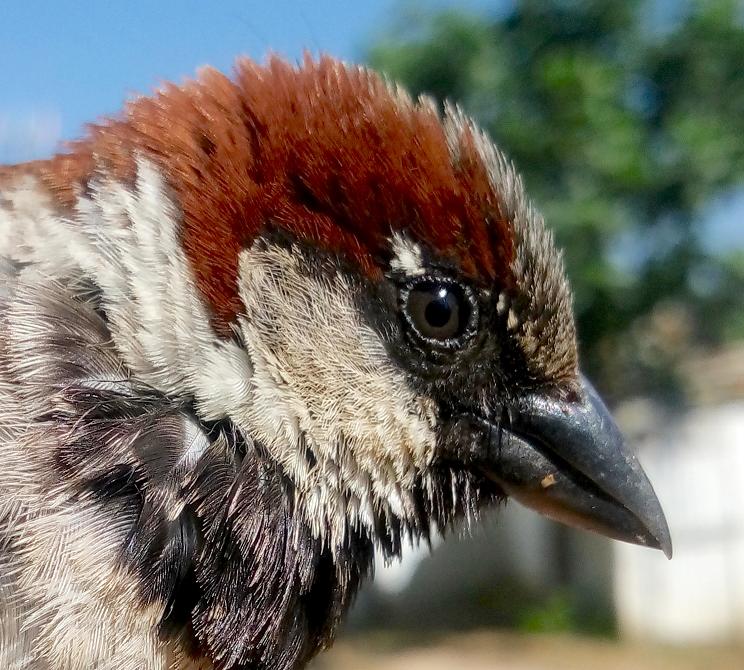Human landscape transformation, especially urbanization, strongly affects ecosystems worldwide. Both urban stressors and parasites have negative effects on organism health, however the potential synergy between those factors has been poorly investigated. The body condition (i.e. body mass after controlling for wing chord) of 2043 house sparrows (Passer domesticus; adults and yearlings) captured in 45 localities along an urbanization gradient in relation to Plasmodium, Haemoproteus and Leucocytozoon infection status was analysed. Body condition was negatively related to urbanization level and to urbanized land coverage but only in yearling birds from urban habitats. In addition, bird body condition tended to increase in rural habitats, significantly in the case of yearlings. Infected individuals by Plasmodium or Haemoproteus had higher body condition than un-infected birds, but this pattern could be due to a selective disappearance of infected individuals with lower body condition as suggested by the reduced variance in body condition in infected birds in urban habitats. These results provide support for a negative impact of urbanization on bird body condition, while Plasmodium and Haemoproteus may exert selection against individuals with lower body condition living in urban habitats, especially during earlier life stages, underlining the synergistic effects that urbanization and parasites may have on wild birds. informacion[at]ebd.csic.es: Jiménez-Peñuela et al (2018) Urbanization and blood parasite infections affect the body condition of wild birds. Sci Total Environ Doi 10.1016/j.scitotenv.2018.10.203
http://www.sciencedirect.com/science/article/pii/S0048969718340944  Latest News
Latest News
 Las altas temperaturas están provocando que las lagunas y las marismas de Doñana pierdan agua rápidamente
Las altas temperaturas están provocando que las lagunas y las marismas de Doñana pierdan agua rápidamente
La superficie inundada en la marisma es de un 78% pero la profundidad es escasa. Por otra parte, sólo el 1,9% de las lagunas temporales están inundadas. Las precipitaciones crean una oportunidad...
 Traffic noise causes lifelong harm to baby birds
Traffic noise causes lifelong harm to baby birds
A study with CSIC participation reveals for the first time that car noise harms individuals throughout their lifetime even years after exposure
 Illegal wildlife trade, a serious problem for biodiversity and human health
Illegal wildlife trade, a serious problem for biodiversity and human health
A research team led by the Doñana BIological Station and the University Pablo de Olavide have detected wild-caught pets in 95% of the localities in the Neotropic and warns of the risk of zoonotic...
 Urbanization and loss of woody vegetation are changing key traits of arthropod communities
Urbanization and loss of woody vegetation are changing key traits of arthropod communities
Urbanization is favouring smaller beetle species and larger spider species with greater dispersal capacity.
The loss of woody areas is linked to a decline in the duration of the activity...
The loss of woody areas is linked to a decline in the duration of the activity...
 Blood lead levels in an endangered vulture species decreased following restrictions on hunting practices
Blood lead levels in an endangered vulture species decreased following restrictions on hunting practices
Canarian Egyptian vulture was on the verge of extinction at the end of the 20th century. At that time, studies revealed that lead poisoning was a serious problem for the population’s survival. The...
— 5 Items per Page
 Asset Publisher
Asset Publisher
Back






